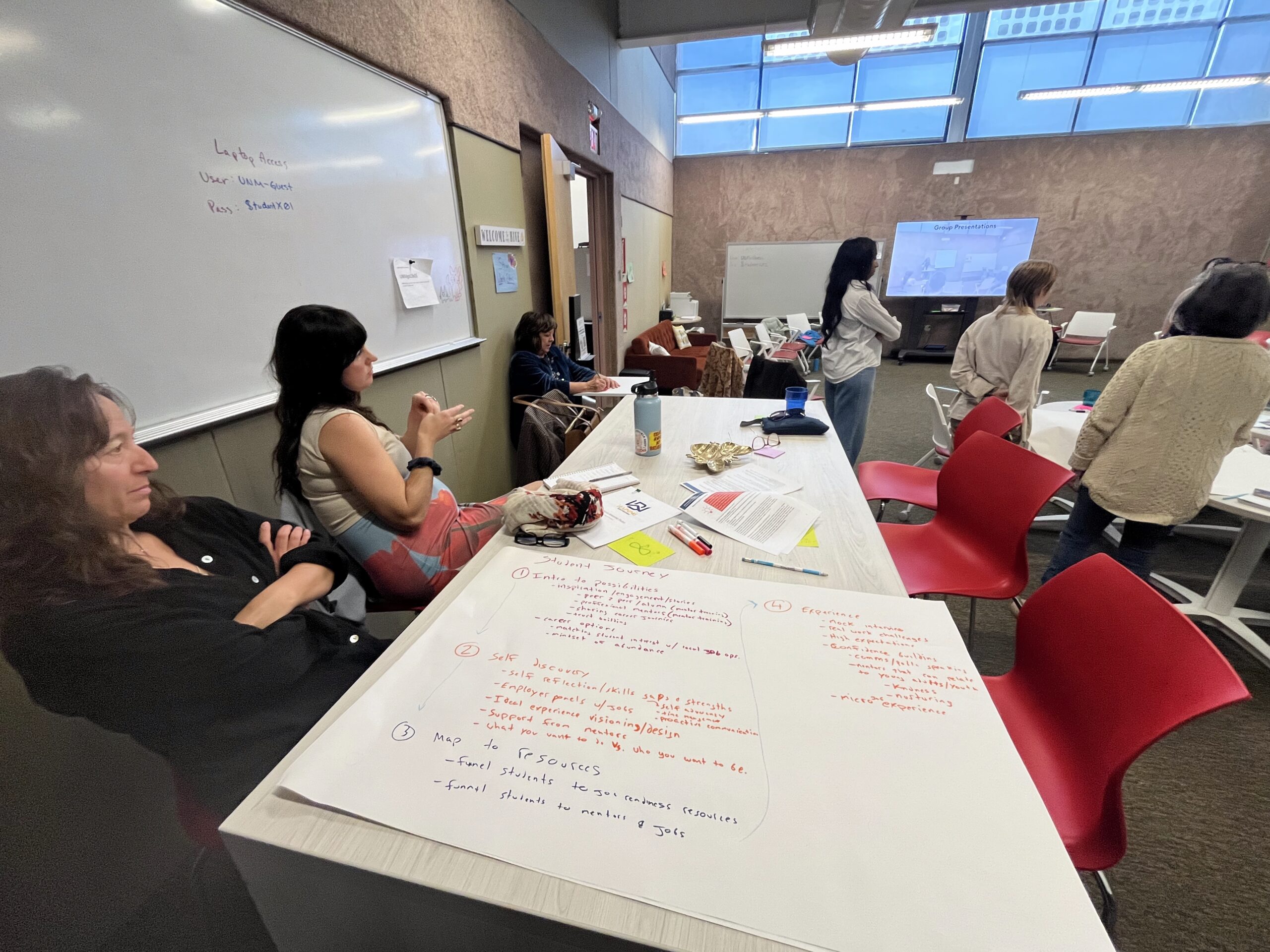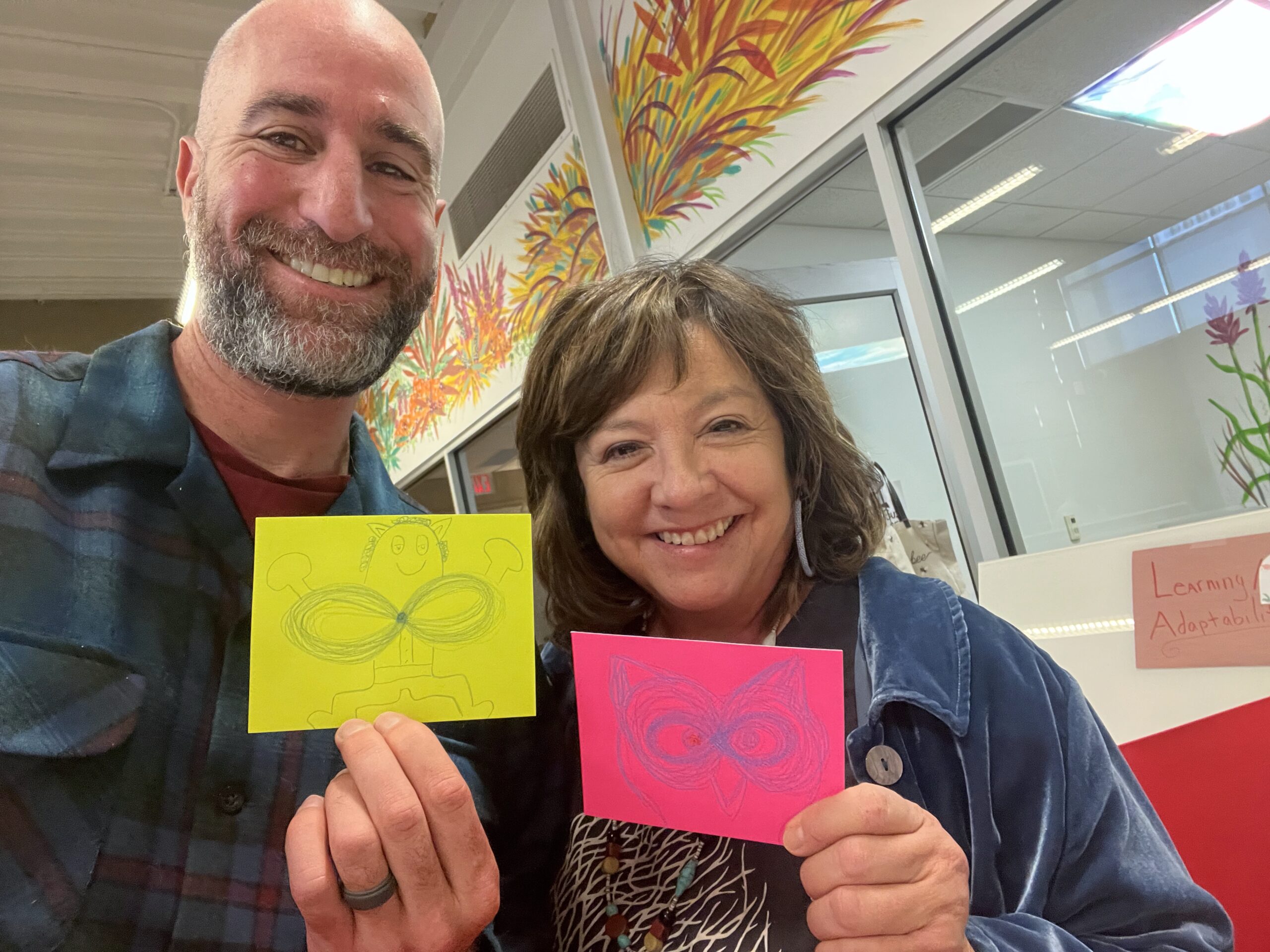Taos, New Mexico: Tech Talent Development in Action
Building tech talent pipelines in rural America is a critical need, and CORI’s unique model and network of communities demonstrates how it can be effectively achieved.
The Problem: Tech Talent Pipelines in Rural
Building tech talent pipelines in rural America is a critical need, and CORI’s network of communities demonstrates how it can be effectively achieved.
A common challenge reported by rural employers is the difficulty in finding local digital and tech talent. When asked about filling roles needing skills such as cybersecurity, IT, website development, and digital marketing, many resort to outsourcing to regional or national firms. However, many wish to hire locally, if they could find and recruit local talent.
Rural learners and job seekers, on the other hand, face a different but related challenge: digital and tech-based training and job opportunities are not highly visible or accessible. Additionally, the lack of comprehensive support services makes it even harder for them to pursue and succeed in these careers.
As a result, rural economies often experience a misalignment between jobs, skills, training, and the connection between employers and workers.

CORI’s Solution: Tech Talent Development
The Center on Rural Innovation has developed a unique model, funded in part by Ascendium, to solve tech talent development pipeline challenges in rural communities. The model is centered on stakeholder engagement and alignment while setting communities up to sustain their own tech workforce development initiatives The process involves inventorying all the people and organizations involved in upskilling and employment and creating a joint strategy that leads to better, long-term employment outcomes.
By assessing employer demand for tech roles, communities can start to identify their talent and training needs.
When talent gaps are identified, CORI collaborates with educators to develop or source training programs and assists employers in recruiting local talent.
In cases where additional training resources are needed, CORI partners with national training providers to fill those needs. CORI also serves as a connector between employers and educators—co-creating curriculum, offering real-world projects, and fostering mentorship opportunities that strengthen the local talent pipeline.
The true power of this process lies in bringing all of these stakeholders together for in-person workshops to develop a shared strategy built by their local community, not directed by CORI.
Taos, New Mexico: CORI’s Solution in Action
CORI’s lead partner in Taos is the Taos Hive, a local innovation hub supported by a public-private partnership between the University of New Mexico-Taos, Kit Carson Electric Cooperative, and the Taos Community Foundation.
To date, CORI has helped facilitate three workshops to support tech talent development and ecosystem alignment. The first workshop focused on employers to inventory skills demand. The second focused on educators to discover what digital and tech training programs already existed.
Once data from our workshops were recorded, CORI developed an alignment report of their jobs, training programs, skills, and wrap-around support. This report serves as a map of their economy’s assets, where job demand and training programs match up, and where there are gaps to fill.
For example, CORI identified a tech training gap where there was job demand for cybersecurity and data science, but no local tech training to get people skills in those areas. As a result, CORI connected Taos to national training programs to fill that gap.
With a clear view of training and job opportunities, the third workshop focused on creating awareness of those opportunities. This requires a joint effort from local employers, nonprofits, educators, and wrap-around support service providers, who were all in attendance.
After facilitating the first few workshops, identifying strengths and opportunities, and sharing our alignment report, the CORI team asked the local leaders in Taos to facilitate the last workshop.
This way leaders like Rose Reza, Executive Director, and Christina Neubrand, Director of Education of The Taos HIVE, who are already known in the community, can magnify the work, build local buy-in, and create a sustainable plan.
The workshop addressed factors and obstacles unique to the community of Taos and UNM Taos, such as helping students identify their own career options, exposing students to local tech careers earlier in their journey, and supporting students through mentorship.

Some of the key action items from this workshop included:
- Developing curriculum and facilitating the self-discovery session for students looking to explore their career journey.
- Engaging local employers to participate in industry panels and the reverse pitch event to expose students to real-world business problems.
- Providing training for mentors on working effectively with the student population.
CORI’s Tech Talent Development team focuses on helping communities own and sustain these programs so they can continue to build tech workforce pipelines that represent their uniqueness. In fact, Taos has already embedded this work into a new local collaborative project called the 100% Taos Initiative whose goal is to bring all of Taos’s community support programs under one umbrella.
How can other rural communities connect to CORI?
If you are looking to build your own tech talent pipeline, upskill people into digital or tech jobs, or map and align your tech ecosystem, we would love to hear from you.
Connect with our Rural Innovation Network team today!
By submitting this form, you are consenting to receive marketing emails from: . You can revoke your consent to receive emails at any time by using the SafeUnsubscribe® link, found at the bottom of every email. Emails are serviced by Constant Contact

